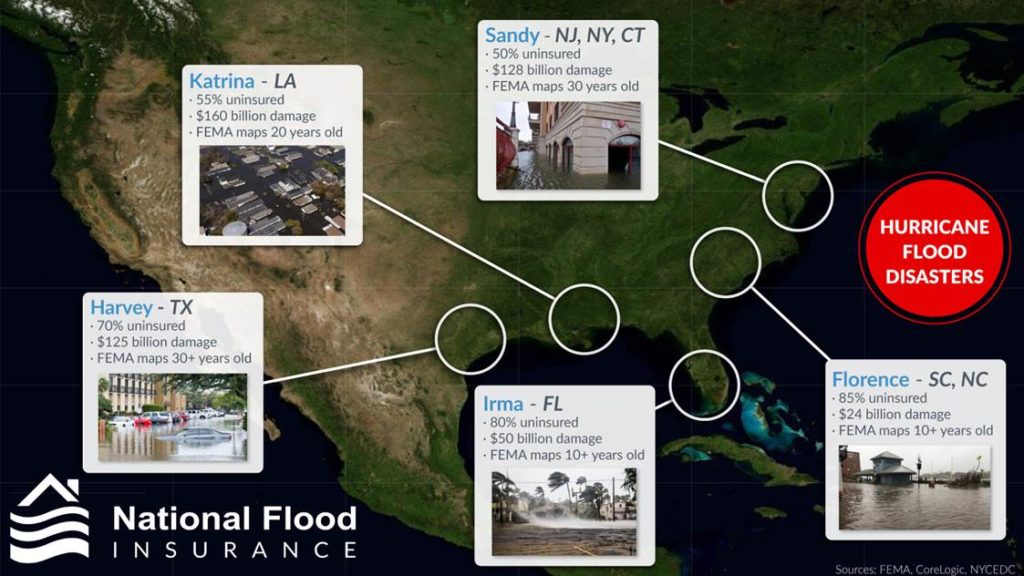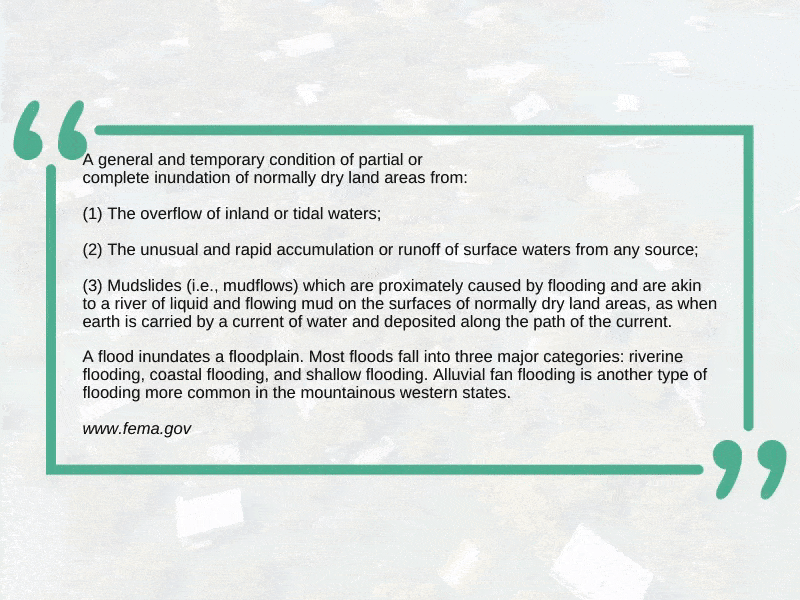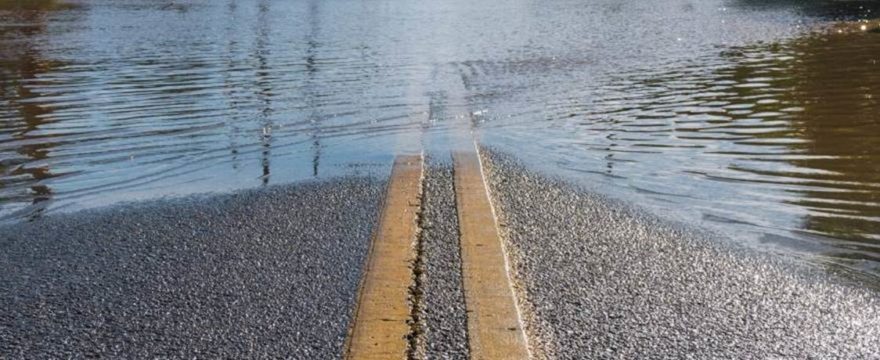This past week was a close call for the state of Florida. Tropical Storm Cristobal posed a potential threat to the Emerald Coast as each day its cone of impact suggested that we were in its direct path. Thankfully, the storm shifted and we were only hit with a weekend of non stop rain and moderate winds. Our friends in Louisiana had very minimal damage as Cristobal made landfall, which we are happy to hear. Florida and Louisiana may be a bit apart from each other, but one thing they have in common is how easy each states’ land can be flooded with excessive rain and standing water.
With one storm already in the books and an entire season full of future possibilities, it’ll be easy to lose count of how many times we’ll experience heavy rains and see some flooding. Roads and canals are the first places to flood but homes are also affected each and every year. Even though our first week brought us a Tropical Storm, we need to start thinking of how flooding and standing water will affect our lives from now to November. Here’s five facts that will explain why floods are extremely dangerous and why flood insurance can really save your tail.
1. One inch of water can cause twenty-five thousand dollars of damage to a home.
It is astonishing to see a dollar amount that large but let’s break this down: As water can rapidly expand from an inch to a foot within minutes, your home is immediately at risk. If you have carpeted floors and water soaks into them, mold can start to form within 24-48 hours. Wood flooring will experience warping. If water gets into electric outlets positioned lower to the ground, there will be electrical failures. Personal property and furniture that sit on the ground will get damaged, and the increasing humidity levels can cause wall paint to blister or wallpaper to peel. If repairs aren’t fast enough, you will be looking at a major home restoration bill that will continue to grow. A flood policy can significantly reduce the financial burden when it comes to repairs and mitigation. Additional flood protection can be found here.
2. The state of Florida has the largest vulnerable population for inland flooding.
The eighteen million (and counting) Florida residents are spread from coast to coast, leaving many to settle inland. While these areas have the advantage of being away from a storm and its direct point of impact, the associated torrential downpours are a constant threat. Inland cities have a problem where standing water has no place to go, is extremely slow to evaporate, and amplifies with more rainfall, thus flooding occurs all over.
3. According to the National Flood Insurance Program (NFIP), eight out of ten households are not protected by flood insurance.
This is a big deal because homeowners insurance does not cover flooding. As these policies are separate, the extra expense may cause a homeowner to pass on flood coverage. There are also strict definitions that insurance companies use to determine what a flood is and what it may not be. These definitions direct the insurance companies how to handle any flood-related claims. As all properties are in flood zones, it may be wise to inquire and budget for this additional policy that will save money on any damages that may occur.

4. Property damage caused by flooding leaves Florida’s coastal real estate at great risk.
These properties are on the longest seacoast in the continental United States. Paired with low to no elevation and constructed on a high water table, flood damage is extremely common and a frequent concern whenever tides are high or a storm approaches the state. Coastal flood hazard areas are classified as “Zone V” which requires mandatory flood insurance. More information about flood zones can be found here.
5. Floods are the most common type of natural disaster worldwide.
Since the earth’s surface is made up of about 71% water, it only makes sense that we will experience flooding more often than any other natural disaster. Other disasters like storms, especially hurricanes, tend to transport water that causes flooding.
Floods Defined:

Even though this is the start to a long season, including the near-miss from tropical storm Cristobal, showers of all kinds from other weather systems may come at us hard and fast. This season will bring flooding to areas you may least expect. As shocking as this information may be, it’s best to be prepared for anything related to standing water, flooding, and the damages they can inflict.
As always, reach out to your Harris Insurance Agent for information about flood insurance. We shop for you and provide quotes that can save you money and keep you safe.

LEGAL DISCLAIMER
Views expressed here do not constitute legal advice. The information contained herein is for general guidance of matter only and not for the purpose of providing legal advice. Discussion of insurance policy language is descriptive only. Every policy has different policy language. Coverage afforded under any insurance policy issued is subject to individual policy terms and conditions. Please refer to your policy for the actual language.




